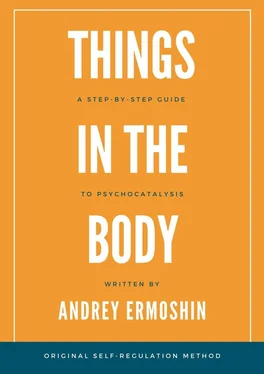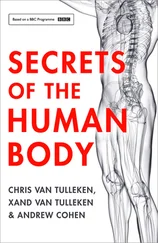For the psychologist it is not easier to tune in to a trusting attitude towards the client. Although initially, they are more «consultative’ and can imagine that, as a specialist, they must be «smarter, stronger, more agile’ than their ward.
For me, falling into all these «traps’ as a result of being interested in my self-development of the «purity of doing’, it became important to track my characterological response, my own neurotic problems and tendencies, which had appeared in the course of my previous professional life.
Below are some examples of my self-analysis (in the manner of «somato-analysis’). I also mention some of the experiences that I have gained through participation in a special program.
Remarkable school
For me it was a remarkable schooling to observe and then participate in the practice of addressing the problems associated with alcohol abuse (and complex problems) according to the methodology of Croatian psychiatrist Vladimir Hudolin. I got acquainted with this approach (called ecologic, family, systemic) in Italy, where I was invited thanks to the inter-confessional cooperation of the Russian Orthodox and Roman Catholic churches.
The so-called operators consider themselves to be a facilitator of the process of staying sober and sees their task as so much doing something for the families, but rather to create conditions in which the families themselves, having problems associated with alcohol consumption, can do what will save them.
If an «active’ approach is used, the alcohol addicted patient is usually «coded’, «torpedoed’, if not sent for the «compulsory treatment’ to the institution of a prison type. The new program of the environmental approach sometimes suggests leaving such a patient alone and start the treatment by changing someone in their family.
The essential point is the «return of responsibility’ («recuperare la responsabilita» in Italian) to the members of the club (the community of families) for the process they are going through. Practically this is achieved in the following way: meeting, «chronicle’, support to absent participants (patronage), the preparation of tea and other things are conducted by the members of the club at a time. The operator only cares about the safety of the atmosphere in which all this is done. Developing the pooling of experiences and resources of club members, they ensure that forces are not wasted on talking about politics, football, etc., thus restricting the simple rules of life in this community of self-and mutual aid: to just talking about the present and to rely on their own collective experiences.
In contrast to the common methods of «healing in one day’ (such as the above mentioned «coding’ or «torpedoing’), this environmental approach gives much slower results, but is incomparably more reliable. The result of the club meetings is directed to the future, to the life of the descendants of the club members. This result is not limited to a period of 12 months or 5 years.
In connection with my participation in that Italian program, I thought of a «plant’ agronomic metaphor. What will the gardener take care of while planting beets in his garden? About the soil and light of course, but he will not try to grow it himself instead of a beetroot. Likewise, it is especially important to the doctors to understand the limitations of their competence and not to overdo it. In the end, the patients are saved by their own effort, not only by the activity of the doctor. This is my conclusion.
Get some rest!
The doctor can see the problems in the form of objects, like a psychic, or guess their location from the “weak signals’ or detect them by testing or infer their presence in many other ways not unlike famous detectives. On the other hand, psychocatalysis specialists will refrain from the open use of their “brilliant abilities’ and their trained “clinical machine’. During work sessions with patients, they will leave their knowledge and intuition out of the equation, trusting the abilities of the mentee. By answering questions, the patient develops the ability to visualize and can even find a path to enlightenment. Questioning is of crucial importance to the process of somatopsychotherapy.
Of course, this does not negate the importance of the training of an «assistant’. Both clinical and psychological preparation is extremely important. Understanding the human character, the peculiarities of nosology classification, the dynamics of experience significantly accelerates the therapy: the ability to ask relevant questions is a great art. However, trust in the patient’s ability to respond in any case remains truly relevant.
One of the components of the internal training of the questioner, including the key to their ability to withstand the intonation, to provide the choice of an answer to a patient, is the understanding that the patients are able to determine their own feelings . This is one of the postulates of therapy through questions about body sensations.
The technique of the « objectification of feelings’ falls under the category of indirect methods. This means that it «includes’ the initiative of the patient and activates his ability to determine and change his state. The solving of this problem is based on the amazing, but usually unused human ability to self-diagnose their own condition as specific images of objects.
This process is called psychocatalysis, by analogy to a catalytic chemical process: there is a «substance’ that can change its state – a petrified emotion – and there is a psychotherapeutic influence (the catalyst) without which this process is difficult, slow or stuck. When they are combined, a «miracle’ occurs.
The patient’s attention is the main active element but is expedited by the catalytic effect of psychotherapist’s questions.
There are two main questions in the diagnostic phase: WHERE and WHAT.
“Obstetricians’
Socrates, with his “skill of midwife’, more than 2000 years ago showed the effectiveness of asking in a philosophical conversation: “People, when being asked right questions, decide themselves what is necessary… 12 12 Losev A. F. Essays on ancient symbolism and mythology. – M.: Thought, 1993, p. 418.
». The discovery of the role of questions as “birth attendants’ is perhaps as significant in the field of interpersonal communication as the discovery of the wheel in technology.
The effectiveness of questioning, instead of stating, was noticed by many wonderful masters not only in philosophical circles but also by the medical «maieutic’. (The Socratic Method, also known as maieutic is a form of cooperative argumentative dialogue between individuals, based on asking and answering questions to stimulate critical thinking and to draw out ideas).
I mean not just ancient the Zen Buddhist teachers with their unanswerable questions («How does one-palm clap sound?»), or the Sufi sages, or Orthodox saints, who, by asking questions, revealed the «soul problems’ of their disciples, spiritual children, no worse than a surgeon with a scalpel reveals ulcers. I am also talking about the masters of psychotherapy.
It would be difficult to describe their work here. After all, even a benevolent silence, a willingness to encourage and to support the mental movement of a patient is also a kind of a question – silent and at the same time the deepest one. «Tell me anything you want.» When I talk about such silence, I mean the empathic acceptance of Carl Rogers, creating a space for safe expression of a client, or a «gap’, the willingness to patiently wait for the manifestations of a patient’s activity, of Arnold Mindell, as a fisherman waits for a bite 13 13 See: Mindell E. Psychotherapy as a spiritual practice. – M: Independent firm «Class», 1997, pp. 84— 101.
. A question creates an area of negative pressure that is ready to take into its form what it is waiting to be let out. The task of a psychotherapist is to model capacities for meaning.
Читать дальше












